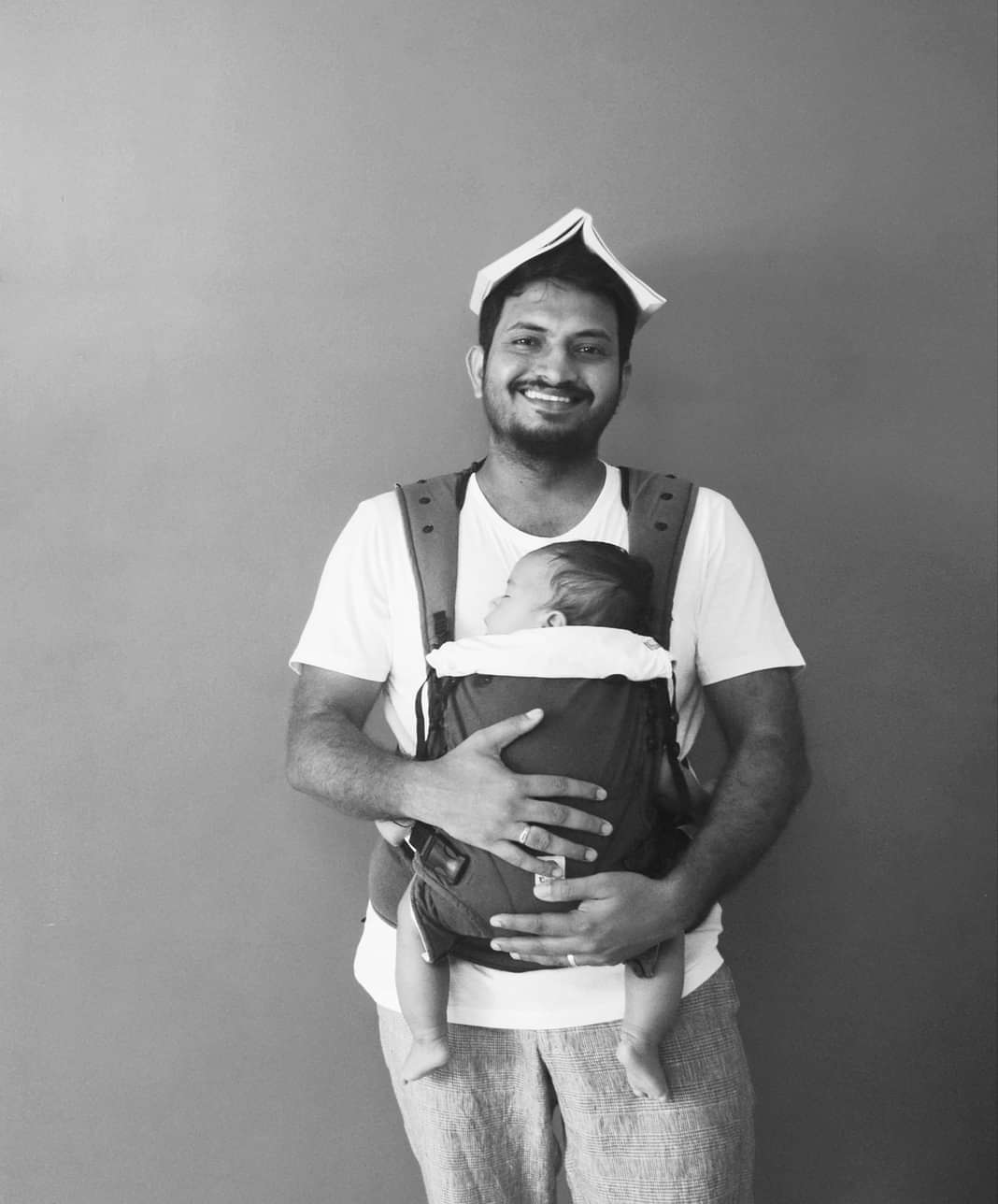
Raghvendra Madhu, homemaker, a poet and one of the leading figures of spoken word poetry in the Capital
A homemaker and a poet, Raghvendra Madhu, is one the leading figures of the spoken word poetry movement in India. He has written award winning collections like ‘Make me some love to eat‘, ‘Stick no bills‘, and ‘Being non- essential‘. Madhu started ‘Poetry Couture‘ from Delhi in 2014 — now reaching various parts of India — from Mumbai, Delhi, Kolkata, to Northeastern states. Through this initiative, he organises poetry events and workshops in various cities.
A Thanjavur Maharastrian, born and brought up in Kolkata, Madhu was a senior public health consultant at the Ministry of Women and Child Development before he decided to quit his job and started full time poetry. He calls himself a multiculturalist. “From childhood, I saw five languages that were generally spoken in my family. So I was comfortable with Bengali, Marathi, Kannad, Tamil and English. I worked in Chhattisgarh and Delhi. And now I am married to Arunachali tribal women and living in Assam.”
Talking about ‘Poetry Couture’, Madhu says that there was a need to unfetter poetry from the confines of university libraries, and bring it to communities. “When we spoke of poetry, it was considered a highbrow idea, like some university professors are writing it in ivory towers.” So there was a cultural disconnect. Even in the school syllabus we read William Blake, William Wordswoth, or for example patriotic poems about the independence movement. “We haven’t seen these poets.” So this generation couldn’t relate that much.
“I felt that poetry belongs to the community and taking it off the shelves of libraries and universities was necessary. Around that time I saw slam poetry was popularising in the US, so the idea of poetry couture, a fashion of poetry, came to me in 2014,” he said.
A lot of young Indians are facing identity issues. “Spoken word poetry helps the youth to express their identity — sexual and cultural.” Delhi being a multicultural city saw this movement taking birth. From sexual minorities, to Northeastern Indians living in metro cities, spoken word poetry has become a prominent theme for them to express themselves.
Madhu believes that spoken word poetry is not entirely borrowed from the West. “In my research I found that although slam poetry is an American idea, when we say slam poetry — it refers to a kind of poetry competition, but spoken word poetry was part of South Asian culture. We have a long tradition of Urdu shayaris, kavi sammelans, and other poetry festivals. So, when we went with Poetry Couture in cities like Mumbai, Kolkata, Assam, we saw people reciting poems in their local languages.” So it was not a new movement per se.
Interestingly, this movement of spoken word poetry has started diminishing in Delhi. Covid is one of the major reasons behind it. Madhu explains it further, “Every movement has its rise and fall. People started picking up banal themes, I am not saying this was wrong. But it doesn’t keep people engaged for long.” Quoting Spanish poet Federico García Lorca, Madhu says, “A poet is an anarchist in the best sense of the word.” He suggests that an artist or poet can’t stick to banal themes, they have to reinvent their art.
Madhu believes that art is about pushing boundaries. He says in Hindi, “Kyu nahi mein art hai” (art is in the question, “why not”). “Art is not about sticking to banal themes. It is about exploring new themes. I have been writing a new book on trash, like if I find a chips wrapper somewhere, I write something on it — I call it trash poetry.” Madhu says, “I am ready to debate if somebody says it’s not poetry. But it is art”
He also holds the view that big publishing houses have a limited understanding of art. “Poets like Chandrakanta Murasingh, Vandana Tete are writing very important accounts of tribal lives.” This is the reason why Madhu wants to bring poetry to the community off the shelves of libraries. He wants young people to take art as an expression for their culture, lives, identities, protests.
“If on a book cover, I am seen holding my son. It is my protest against patriarchy. And I am expressing it through this picture, as well as poetry written in it.”
(Cover: Poet Raghvendra Madhu with his son)
For more stories that cover the ongoings of Delhi NCR, follow us on:
Delhi Police will deploy over 15,000 personnel across the city during Holi, with intensified patrols…
A Delhi canteen owner was allegedly murdered and dismembered by his friend and accomplices for…
A 21-year-old man has been arrested for allegedly stabbing two teenage brothers at a Haiderpur…
Droupadi Murmu launches Pink National Common Mobility Card, free LPG cylinder benefit, and two financial…
Court says detention unnecessary, cites liberty concerns in AI summit protest case
Indian airlines cancelled 760 overseas flights in the last two days owing to the escalating…